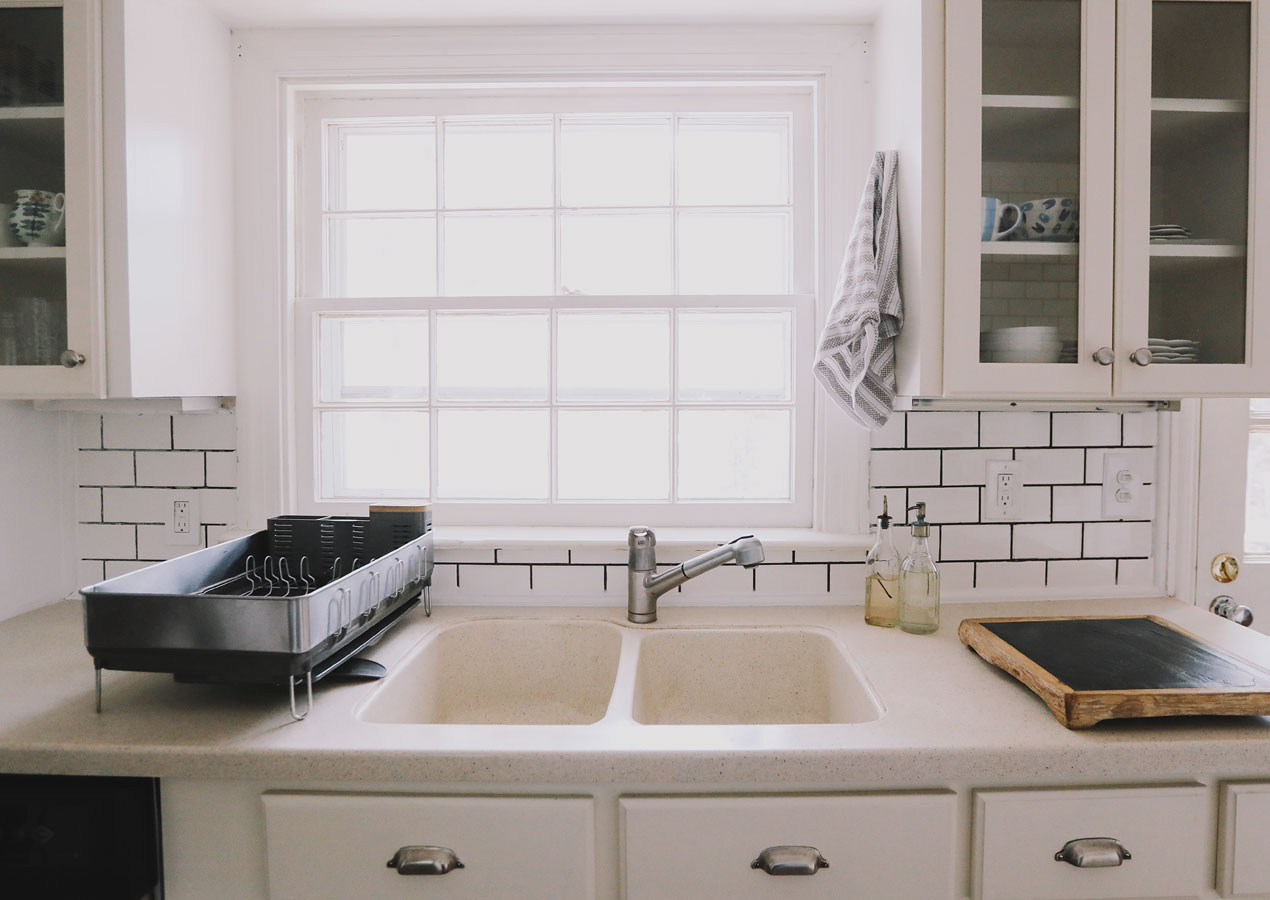
27 May Why Does My Sink Smell Like Rotten Eggs?
The smell hits you like a ton of bricks. Emanating from your kitchen sink, a rotten, sulfuric odor invades your home—and it’s bad. So what do you do about the situation? Well, the problem with a stinky sink is that the smell can be the consequence of a myriad of different plumbing problems—so your best bet is to call a certified plumber to fix it for you. However, if you’d like to try and troubleshoot it yourself, the first step in the process is finding out where exactly the smell is coming from, whether it’s the drain or the water itself.
What is the source of that smell?
Finding the problem is as easy as pouring yourself a glass of water from the sink, taking it outside of your home and smelling it. If you can smell the scent of sulfur from the water, pour yourself another glass from a different drain in your house, like a bathroom sink or your shower, and smell it outside once more. If you smell the odor again, this time from a different drain in your home, then the problem is likely in your water itself. If, however, you can only detect the rotten egg stink from the initial drain you tested—and not the second source—it’s likely that drain specifically is the problem.
What if it’s coming from my drain?
If you have done the water test and discovered that it’s your drain that is the problem, there are quite a few things that can be done, and multiple methods may have to be tested to fully fix or identify the problem.
Clogged or Partially Clogged Drains
The most common problem is a clogged, or partially clogged, drain. When a sink is clogged and drains slower than they should, bacteria will build up in the p-trap and create a bubble of hydrogen sulfide gas. To remedy this, you’ll have to remove your p-trap to see if anything is clogging your drain and remove it if you can.
Garbage Disposal Issues
Another common issue is that your garbage disposal unit has accrued too much crud in it and has begun to smell. Small bits of food can get stuck onto the garbage disposal blades, leading to a rotting smell. Attempting to remove and tear apart your garbage disposal isn’t recommended for cleaning, but you can try to run ice cubes through your garbage disposal to dislodge the rotting food scraps. Running a few slices of orange, or pieces of citrus, through your garbage disposal will also help to replace the scent with something more palatable.
Major Grease Buildup
Grease is also a major proponent of stinky sinks. Grease buildup is a major reason why it is not OK to pour excess grease or fats down your drain since its decomposition can lead to a very unpleasant smell. What you can do in this situation is to put a few teaspoons of baking soda down your drain and then pour in some vinegar. This will help to cleanse the grease that has built up along your drain, and a cup of boiling hot water can help to wash down anything nasty that remains. Drain traps are also your best friend when it comes to dealing with odors creeping back up your pipes, however installing one will require a plumber’s assistance—fortunately there are great ones in Hawaii.
What if my water smells?
If the problem isn’t the drain, but the water itself—you’d know this if you smelled the odor from both cups of water—then you’ve got yourself a bit of a problem. When it comes to stinky water, there are numerous points of failure and some of which are out of your control.
Water Heater Might be the Problem
Best case scenario, the magnesium from your water heater’s anode rod is reacting poorly with bacteria and polluting your water. A simple fix would be to replace the anode rod with an aluminum rod and disinfect your water with hydrogen peroxide.
Break or Breach in the Water Line
The main cause of contaminated water in your home is a break or breach in your waterline. Many homes with older, out-of-date materials may find this to be the case as wear and tear on pipes can lead to eventual breakages. And since your waterline runs from your home, down the street and all the way to your district’s main water treatment plant, there are numerous points along the way where your water may become contaminated. Mold and bacteria growth, oftentimes caused by leaks in your plumbing, can also contribute to stinky water.
For the most part, if your water seems to be the issue, call your plumber. While it isn’t impossible that you troubleshoot it yourself, it is much, much more difficult to do compared to a single drain or sink that is giving you issues. Most plumbing companies will offer to flush the heater, change out the anode rod as well as check the function of the temperature and pressure relief valve in addition to fixing any leaks or breakages that could be causing the smell.
535 Plumbing
If you live on Oahu and are in need of a plumber, choose 535 Plumbing for the job! Our team of professional Oahu plumbers are highly skilled and our excellent customer support representatives will work with you to schedule your appointments at a time you most convenient. Learn more and schedule an appointment by calling (808) 300-0535, or Visit Our Contact Us Page. Mahalo!


